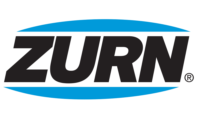NSF Intl.
recently announced that the World Health Organization has renewed NSF’s
status as a WHO Collaborating Centre for Food and Water Safety and Indoor
Environment.
As a WHO
Collaborating Centre, NSF provides assistance to WHO and member states on
matters related to food safety, water quality, indoor environment and related
public health issues.
NSF Intl.
recently announced that the World Health Organization (WHO) has renewed NSF’s
status as a WHO Collaborating Centre for Food and Water Safety and Indoor
Environment.
As a WHO
Collaborating Centre, NSF provides assistance to WHO and member states on
matters related to food safety, water quality, indoor environment and related
public health issues. NSF’s extensive work within the food, water and
environmental sectors led to its role as a WHO Collaborating Centre.
A
Collaborating Centre is designated to form part of an international network
supporting WHO’s mandate for international health. NSF provides WHO expertise
on food safety, drinking water safety and treatment technology, and indoor
environment guidance. This includes offering developing countries training and
support to strengthen their food, water and indoor air resources and helping
WHO respond to national public health agencies, industry and consumers.
Originally
designated in 1996, this is the second renewal of the NSF/WHO Collaborating
Centre that has helped WHO deliver on its public health mission. NSF Intl. has
been a WHO Collaborating Centre for Drinking Water since 1996, with recognition
for Food Safety added in 1997 and Indoor Environment in 2003. NSF received the
designation as a WHO Collaborating Centre because of NSF's independent,
not-for-profit status; global presence; and its support for WHO in the past.
Additional
projects with WHO have included the following:
* Symposium and monograph on Heterotrophic Plate Counts
and Drinking Water Safety in 2003.
* NSF/WHO Drinking Water Risk Management Strategies
Conference in 2004.
* International Symposium on the Health Aspects of
Calcium and Magnesium in Drinking Water in 2006.
* Food Safety Education Conference – “Reaching At-Risk
Audiences” and “Today's Other Food Safety Challenges” also in 2006.
* WHO Guidelines Document development in the 3rd edition
of WHO Drinking Water Guidelines
- Recreational Waters Guidelines
- Chemicals Used in Desalination
Processes
- Fruits and Vegetables Eaten
Raw
- Airline Water Sanitation
- NSF employees have been stationed at WHO in Geneva and
Brussels for the last two years, working directly with WHO staff on
airline water sanitation and water safety plans.
According
to Stan Hazan, Senior Director of NSF’s Regulatory Affairs and Association
Programs, “Future initiatives with WHO will include development of the 4th
edition of WHO Drinking Water Guidelines, completion of the airline water
sanitation guidelines, promotion of WHO’s 5 Keys to Food Safety Systems, the
development of a certification program for water treatment technologies, and
cooperation on the 2009 NSF/USDA Food Safety Education Conference to be held in
Atlanta in 2010.”
Get our new eMagazine delivered to your inbox every month.
Stay in the know on the latest plumbing, piping, hydronic and fire protection trends.
SUBSCRIBE TODAYCopyright ©2024. All Rights Reserved BNP Media.
Design, CMS, Hosting & Web Development :: ePublishing

